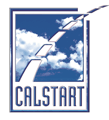CALSTART Proposal Selected as a Top Proposal for Nationally Electrifying Transport by The CLEEN Project
Selected Proposals Inform U.S. Leaders on Actionable Ideas to Combat Climate Change, Advance Climate Justice
PASADENA, CA, March 11, 2021 — With the right framework and clear objectives, the American Jobs Plan could help the U.S. transportation sector leap forward as a global leader in clean technologies and decarbonization. CALSTART’s proposal to Spur US Medium and Heavy-Duty EV Manufacturing via Point-of-Sale Incentive has garnered the attention of policy experts and is one of three top recommendations in The CLEEN Project’s thematic release today on Electrifying Transport: Ideas for the United States to Lead the EV Revolution. The point-of-sale incentive proposal is one highlighted policy in The CLEEN Project’s co-operative database, a searchable collection of actionable ideas to combat climate change, Build Back Better, and advance climate justice.
CALSTART’s proposal centers on a new federal 10-year point-of-sale rebate and tax incentive for the purchase of American-made medium- and heavy-duty (MHD) zero-emission trucks (ZETs). If created, this incentive is projected to support the deployment of over 478,000 clean trucks and buses deployed nationwide, avoid emissions equivalent to taking 5.4 million cars off the road, and support 55,000 direct and indirect jobs over the incentive’s lifetime.
“Based on the MHD industry’s experience at the state level, point-of-sale incentives are a transparent, effective way to encourage ZET adoption by fleets of all sizes, particularly small fleets and entities without significant tax liability,” said Kyle Winslow, federal policy director at CALSTART and lead on the CLEEN proposal. “The vast majority of truck fleets on U.S. roads today operate six vehicles or fewer. We have found that typical tax credits meant to accelerate purchases of cleaner vehicles, though helpful for some fleets, are hard for these smaller fleets to monetize and consequently to actually impact the fleet manager’s decision to purchase a ZET, so point-of-sale rebates are the market mechanism of choice.”
Before and increasingly during the COVID pandemic, the delivery van and truck segment has grown rapidly. These vehicles will continue to power the national economic recovery while expanding to new local-, regional-, and long-haul freight applications. While freight growth supports new and emerging economic practices, the increased activity in warehouse and transport districts generates air pollutants that have an outsized impact on the health of local communities, many of whom already were suffering from high concentrations of lung and heart disease, cancer, and are disproportionately impacted by COVID. Incentivizing fleets of all sizes to rapidly transition to zero emission technology is an investment in community health outcomes and American supply chains.
Compared with an investment tax credit that is reimbursed after a completed vehicle sale, CALSTART anticipates that a point-of-sale incentive’s first five years of would:
- Put over 60,000 more ZETs on U.S. roads;
- Reduce about 1,000,000 more tons of CO2, 11,000 more tons of NOx, and 43 more tons of PM5 emissions
- Create and retain over 6,200 more U.S. manufacturing and ZET supply chain jobs
About CALSTART
A national nonprofit consortium with offices in New York, Michigan, Colorado and California and partners world-wide, CALSTART works with 280+ member company and agency innovators to build a prosperous, efficient, and clean high-tech transportation industry. We overcome barriers to modernization and the adoption of clean vehicles. CALSTART is changing transportation for good.
About The CLEEN Project
The CLEEN Project is our nation’s first co-operative idea database designed specifically for federal leaders and focused on providing actionable ideas to combat climate change, Build Back Better, and advance climate justice. The CLEEN Project was created through a collective of 300 contributors and 75 Advisory Board members from the private sector, federal and state government, environmental justice organizations, and leading climate-focused think tanks who share a desire to help catalyze job creation and a 21st century clean and just economy.
